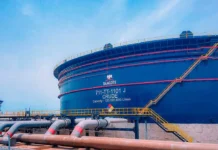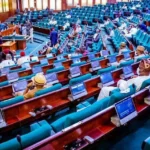President Bola Ahmed Tinubu has approved the introduction of a 15 per cent ad-valorem import duty on petrol and diesel imports into Nigeria, a move the government says is designed to protect local refineries, stabilise the downstream market, and promote energy security.
The directive, contained in a letter dated October 21, 2025, and made public on October 30, was addressed to the Federal Inland Revenue Service (FIRS) and the Nigerian Midstream and Downstream Petroleum Regulatory Authority (NMDPRA).
Signed by Tinubu’s Private Secretary, Damilotun Aderemi, the letter conveyed the President’s approval following a proposal from the Executive Chairman of the FIRS, Zacch Adedeji, seeking the application of a 15 per cent duty on the cost, insurance, and freight (CIF) value of imported petrol and diesel.Adedeji, in his memo to the President, explained that the policy forms part of ongoing reforms to boost local refining, ensure price stability, and strengthen Nigeria’s naira-based oil economy in line with the administration’s Renewed Hope Agenda.
“The core objective of this initiative is to operationalise crude transactions in local currency, strengthen local refining capacity, and ensure a stable, affordable supply of petroleum products across Nigeria,” Adedeji stated.
He warned that the current misalignment between locally refined products and import parity pricing has created market distortions, undermining the competitiveness of emerging domestic refineries.
“While domestic refining of petrol has begun to increase and diesel sufficiency has been achieved, price instability persists partly due to the misalignment between local refiners and marketers,” he wrote.
Adedeji noted that the import parity benchmark, used to determine pump prices, often falls below cost recovery levels for local producers, particularly during foreign exchange and freight fluctuations.
The FIRS boss emphasised that the government must “protect both consumers and domestic producers from unfair pricing practices and collusion”, while maintaining a level playing field for refiners to recover costs and attract investments.
He added that the tariff framework would help discourage duty-free fuel imports from undercutting domestic producers, fostering a more competitive downstream environment.
According to government projections, the 15 per cent import duty could raise the landing cost of petrol by about ₦99.72 per litre, pushing estimated Lagos pump prices to around ₦964.72 per litre ($0.62).
Even with the adjustment, the letter noted, Nigeria’s fuel prices would remain below regional averages, including Senegal ($1.76), Côte d’Ivoire ($1.52), and Ghana ($1.37 per litre).
The move comes amid Nigeria’s intensified push to reduce dependence on imported petroleum products and ramp up domestic refining capacity.
The 650,000 barrels-per-day Dangote Refinery in Lagos has already begun producing diesel and aviation fuel, while modular refineries in Edo, Rivers, and Imo states have commenced small-scale petrol refining.
However, despite these gains, petrol imports still account for nearly 67 per cent of national demand, underscoring the government’s urgency in rebalancing the downstream sector through protective and market-aligned policies.










